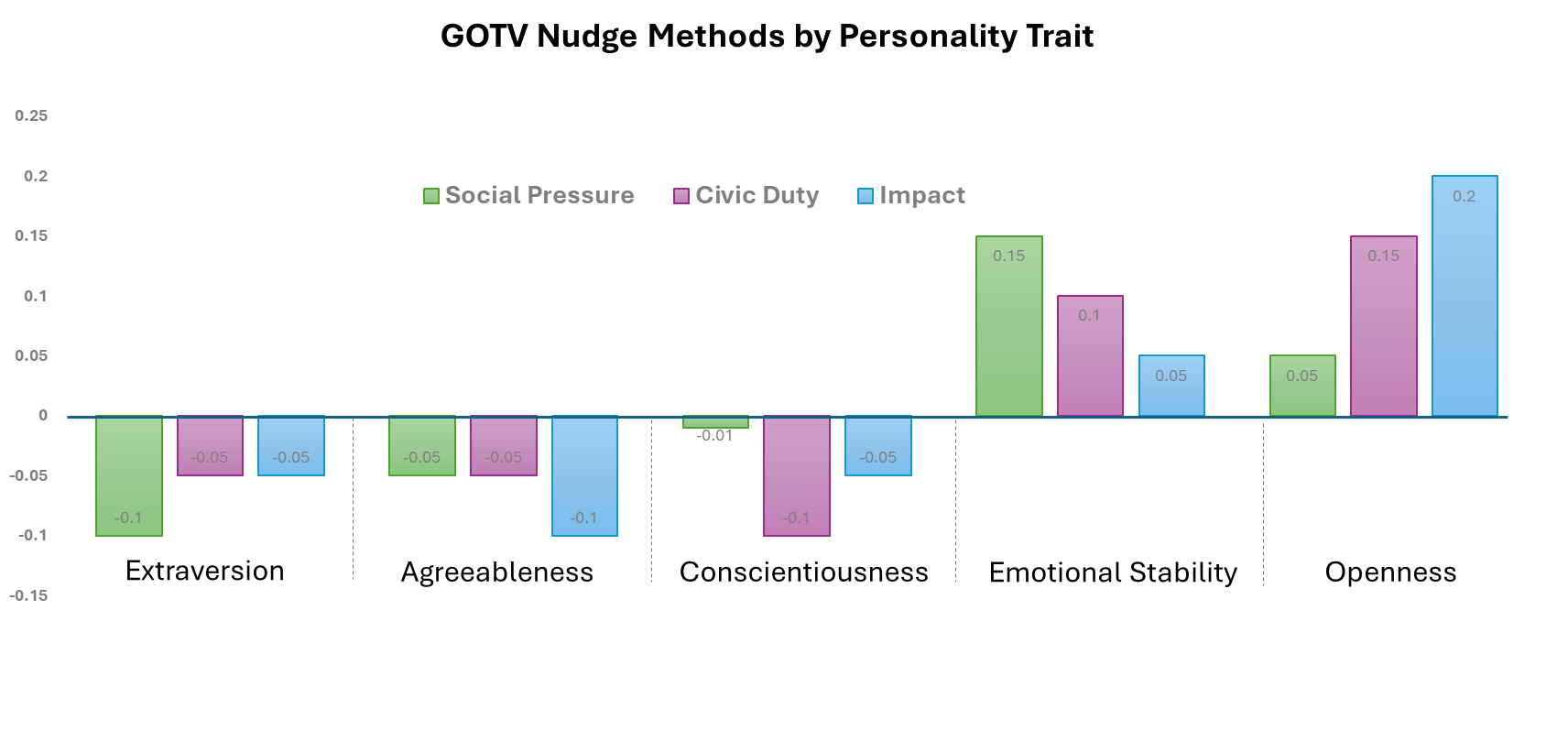GOTV Works. GOTV Doesn’t Work.
There was a field experiment a few years back using social pressure mailers that increased voter turnout by around 8 percentage points.
That’s a massive lift.
But averages, even big lift ones, can hide a lot. Nothing works the same with everybody. There aren’t universal “nudges” or other tactics that apply evenly to all people.
To quote the late great Paul Harvey, here’s the rest of the story. Three different nudge interventions:
- Social Pressure– “Did you know that whether or not you vote is public information? After the election, people like your family, friends, and neighbors can check if you voted.”
- Civic Duty – “Voting is a key part of our democracy. Your vote is your voice in government. Fulfill your civic duty and vote in the upcoming election.”
- Impact – “During the last election, a candidate in [your district] won by just 83 votes! One voter said, ‘I didn’t vote, and now I regret it. My vote could have changed the outcome.’ Your vote can truly make a difference.”
The results? Different for different types of people.  You could take any A/B test result and break out the “winning” test by RFM, demographics or a slew of 3rd party data and see differences galore. Oh look, the test did really well with wine enthusiasts but very poorly with domestic beer drinkers. Your mind will instantly fit a story to these differences turning random noise into harmonic patterns.
You could take any A/B test result and break out the “winning” test by RFM, demographics or a slew of 3rd party data and see differences galore. Oh look, the test did really well with wine enthusiasts but very poorly with domestic beer drinkers. Your mind will instantly fit a story to these differences turning random noise into harmonic patterns.
It’s only when theory guides design that we get to a why. Did our predicted interventions work as expected and differently for different people?
- People high in Openness are receptive to new information, they like thinking differently. They didn’t see manipulation or trivialness, they saw an opportunity to reconsider and change behavior accordingly.
- The Agreeable and Extroverted people had psychological reactance kick in with the social pressure message (the other two are not statistically different from zero). Agreeable people normally like to help others and go along with the crowd but not if their nose is rubbed in it.
- Conscientious people are achievement and task oriented. They vote for the utility of it. The civic duty message is too abstract and high minded, running counter to their main reason for voting. If this message were appealing to authority or loyalty to an-ingroup it might have worked.
- People high in Emotional Stability take the negative social pressure message and act on it in the intended way – voting to avoid negative social pressure. Those low in this trait did the exact opposite, voted less because their preferred way of dealing with the negative is avoidance.
People are different but in predictable ways. If your message designed to get people to do something is one-size-fits-all it’s forever leaving money or votes on the table.
Kevin


